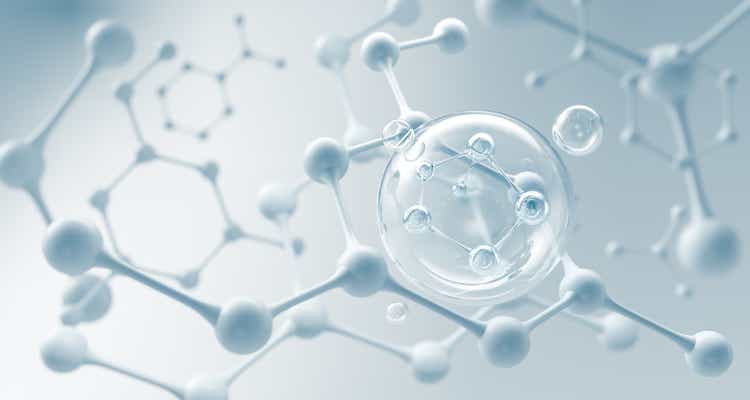anusorn nakdee
Deals and Financings
Boston Scientific (BSX) will pay $523 million for a 65% stake in Acotec Scientific (HK: 6669), a Beijing medical device company that offers cardiovascular devices (see story). Acotec has developed a portfolio of drug-coated balloons and percutaneous transluminal angioplasty hardware, as well as radiofrequency ablation catheters. The offering price was 32% over the previous close and 136% over the average close for the last 150 days. Boston Scientific said the acquisition will build its China presence while it will bring Acotec’s products to western markets.
Suzhou Innovent (HK: 01801) in-licensed China rights to a gout treatment from Korea’s LG Chem Life Science in a $95 million agreement. LG Chem’s Tigulixostat is a novel non-purine xanthine oxidase inhibitor aimed at the management of chronic hyperuricemia in gout disease patients. In a US Phase II trial, the candidate showed efficacy for sUA lowering and a good safety profile as a first-line therapy. Innovent will make a $10 million upfront payment to LG Chem, and it will be responsible for $85.5 million in milestones, plus royalties.
Hong Kong’s Prenetics (PRE), a genomic/diagnostic testing company, will acquire a majority stake in ACT Genomics, also a cancer testing company, for US$60 million, consisting of US$40 million in its own stock and US$20 million in cash. ACT, headquartered in Taiwan but with operations throughout Southeast Asia, offers next-generation sequencing (NGS) and bioinformatics in tissue and liquid biopsy for precision oncology. Prenetics says its goal is to make cancer genomics accessible to all.
Alternative Bio raised $15 million in a seed round to develop a novel class of post-translational modifying enzymes as cancer treatments. The company’s technology is based on the work of three well-known academics in biomedical health with expertise in the areas of signaling, gene expression regulation, cancer biology, and drug discovery. ABio has an innovative discovery platform to advance candidates that are aimed at some of the world’s most intractable cancers. The seed round was co-led by three China investors: Eight Roads Ventures, F-Prime Capital, and Sequoia China Seed Fund.
Suzhou 4B Technologies closed a $14 million Series Pre-B financing led by Fortune Capital to advance its portfolio of nine novel candidates for neurodegenerative diseases and neurological injuries. Founded in 2017, the company’s lead asset is aimed at treating amyotrophic lateral sclerosis and a rare condition, neuromyelitis optica. Other products address acute optic nerve injury and a second ALS candidate co-developed with Peking University Third Hospital. 4B develops drugs through its own research and its partnership with outside pharmas and Tsinghua University.
Nanjing Biosion formed an exploratory research collaboration with Boston’s ImmunoGen (IMGN) to create antibody-drug conjugates for solid tumor cancers (see story). To generate the novel drug candidates, Biosion will apply its proprietary SynTracer® high-throughput endocytosis platform, and ImmunoGen will provide its proprietary linker-payload technology. Both companies will specify targets of interest. Biosion is a clinical-stage biotech that develops antibody-based therapies for immune and oncology indications.
Chengdu HitGen (SHA: 688222) formed a partnership with Nitrase Therapeutics, a San Francisco area company, to discover candidates for a new class of enzymes, nitrases, identified by the company. Nitrase says nitrases seem implicated in Parkinson’s, cancer, respiratory diseases, fibrosis, and other neurodegenerative diseases. The company’s NITROME platform has generated leads to inhibit nitrase enzymatic reactions to stopping protein nitration. HitGen will apply its DNA-encoded library platform to discover compounds that bind targets of interest to Nitrase. HitGen will receive an upfront payment and will be eligible for milestone payments from Nitrase.
Trials and Approvals
BeiGene (BGNE; HK: 06160; SHA: 688235), a Beijing-based biopharma, announced that its BTK inhibitor, Brukinsa (zanubrutinib), was more effective than Janssen’s Imbruvica (ibrutinib), the current standard of care, in a head-to-head leukemia trial (see story). In a Phase III trial, Brukinsa patients saw a 35% lower risk of disease progression or death compared to Imbruvica. At the 24-month follow-up, progression-free survival rates were 78.4% for Brukinsa versus 65.9% for Imbruvica. The ALPINE trial enrolled patients with relapsed/refractory chronic lymphocytic leukemia (CLL) or small lymphocytic leukemia (SLL).
Shanghai CARsgen Therapeutics (HK: 2171) reported positive data from a pivotal China Phase I/II trial for its lead candidate, a fully human, autologous BCMA CAR T-cell product. The Zevor-cel trial enrolled 102 patients with multiple myeloma who had received at least three previous treatments. For all 102 patients, the median follow-up was 9 months and the Overall Response Rate was 92.2%, the rate of very good partial response or better was 85.3%, and the Complete Response Rate/strict Complete Response rate was 45.1%. CARsgen has filed an NDA for China approval of Zevor-cel in this indication.
Beijing Jacobio Pharma’s (HK: 1167) self-developed KRAS G12C inhibitor was granted breakthrough therapy designation in China for non-small cell lung cancer (NSCLC) patients with a KRAS G12C mutation. The indication is for second line treatment in advanced or metastatic NSCLC patients. In preliminary Phase I data, 32 NSCLC patients with the mutation showed a 56.3% overall response rate and 90.6% disease control rate. Jacobio believes JAB-21822 has the potential to be a best-in-class drug.
Disclosure: none.
Editor’s Note: The summary bullets for this article were chosen by Seeking Alpha editors.


Be the first to comment